Science Stream after 10th? Here’s All You Need To Know
Choosing the right stream after 10th grade is a crucial decision that sets the foundation for your future career. It’s completely normal to feel overwhelmed with the choices and the pressure of making the “right” decision. As a 10th-grade student, you might be wondering which path to take, and as a parent, you want to support your child in making an informed choice. Let’s talk about why the Science stream might be the perfect fit for you. Check out Deeksha’s top PU college for Science stream.
The Science stream opens up a world of possibilities and provides a strong base for various career options. Whether you’re passionate about solving complex problems, fascinated by the workings of the natural world, or excited about technological advancements, Science has something to offer. It’s a versatile stream that not only prepares you for careers in medicine and engineering but also for fields like research, environmental science, and information technology.
Science isn’t just about textbooks and exams; it’s about understanding the principles that govern our universe and applying them to real-world challenges. With a solid grasp of subjects like Physics, Chemistry, Biology, and Mathematics, you’ll develop critical thinking skills and a problem-solving mindset, which are highly valued in any profession.
Remember, this decision is the beginning of an exciting journey. By choosing the Science stream, you’re not just limiting yourself to one career path but opening doors to multiple opportunities that can evolve as your interests and the world around you change. So, take a deep breath, explore your options, and choose a path that excites you and aligns with your strengths and passions. We’re here to help you every step of the way!
Making the right choices after 10th
Why Choose the Science Stream?
Advantages of Opting for the Science Stream
Opting for the Science stream offers numerous advantages. It provides a strong foundation in subjects like Physics, Chemistry, Biology, and Mathematics, which are essential for many high-demand professions. Science encourages analytical thinking, problem-solving skills, and a deep understanding of how the world works. This stream also keeps your options open for future studies, allowing you to switch to Arts or Commerce later if you choose.
Scope and Flexibility in Career Choices
The Science stream offers immense scope and flexibility in career choices. Whether you dream of becoming a doctor, engineer, scientist, or IT professional, Science lays the groundwork for these paths. Beyond traditional careers, Science graduates can pursue opportunities in emerging fields like biotechnology, environmental science, data science, and artificial intelligence. This flexibility ensures that you can adapt to changing interests and industry trends, providing a wide array of career options.
Comparison with Other Streams (Arts and Commerce)
When compared to Arts and Commerce, the Science stream offers a more extensive range of career opportunities. Arts focuses on creative fields like literature, history, and fine arts, leading to careers in education, media, and design. Commerce, on the other hand, revolves around business, economics, and finance, leading to careers in accounting, management, and marketing. While these streams have their own merits, Science stands out for its ability to bridge to both technical and non-technical careers, offering a balanced mix of theoretical and practical knowledge.
In summary, the Science stream provides a robust and versatile education that can lead to numerous rewarding careers, making it an excellent choice for students who are curious, analytical, and eager to explore the world.
Life Skills for 10th Grade Students
Core Subjects in Science Stream
Physics
Physics is the study of matter, energy, and the fundamental forces of nature. It explores concepts ranging from the smallest particles to the largest galaxies.
Key Concepts and Topics Covered:
| Topic | Description |
| Mechanics | Motion, forces, energy, and work |
| Electricity and Magnetism | Electric circuits, magnetic fields, electromagnetism |
| Optics | Light, reflection, refraction, lenses |
| Thermodynamics | Heat, temperature, energy transfer |
| Modern Physics | Quantum mechanics, relativity, atomic structure |
Importance in Various Fields:
- Engineering: Physics is foundational for all engineering disciplines, including mechanical, electrical, and civil engineering.
- Research: Opportunities in scientific research, including theoretical and experimental physics.
- Technology: Crucial for careers in IT, robotics, and nanotechnology.
Chemistry
Chemistry involves the study of substances, their properties, reactions, and the use of such reactions to form new substances.
Key Concepts and Topics Covered:
| Topic | Description |
| Organic Chemistry | Study of carbon compounds |
| Inorganic Chemistry | Study of inorganic compounds |
| Physical Chemistry | Principles of thermodynamics, kinetics |
| Analytical Chemistry | Techniques for analyzing substances |
| Biochemistry | Chemical processes within living organisms |
Applications in Different Industries:
- Pharmaceuticals: Development of drugs and medicines.
- Chemical Engineering: Designing processes to convert chemicals into useful products.
- Environmental Science: Studying pollution and developing green technologies.
Biology
Biology is the study of living organisms, their structure, function, growth, evolution, and ecology.
Key Concepts and Topics Covered:
| Topic | Description |
| Cell Biology | Structure and function of cells |
| Genetics | Heredity and variation in organisms |
| Human Physiology | Functions of the human body |
| Ecology | Interactions between organisms and their environment |
| Evolution | Origins and changes in the diversity of life |
Career Paths:
- Medical Field: Doctors, nurses, and other healthcare professionals.
- Biotechnology: Developing products based on biological systems.
- Environmental Science: Conservation, ecology, and wildlife management.
Mathematics
Mathematics is the abstract science of number, quantity, and space, essential for logical reasoning and problem-solving.
Key Concepts and Topics Covered:
| Topic | Description |
| Algebra | Equations, inequalities, polynomials |
| Calculus | Limits, derivatives, integrals |
| Trigonometry | Study of triangles and trigonometric functions |
| Statistics | Data analysis, probability, and distributions |
| Geometry | Properties and relations of points, lines, surfaces |
Role in Careers:
- Engineering: Essential for designing and analyzing systems.
- Data Science: Statistical analysis and algorithm development.
- Actuarial Science: Risk assessment in finance and insurance.
Optional Subjects
Optional subjects offer students the opportunity to explore additional areas of interest and complement their core science studies.
Brief Overview and Their Significance:
- Computer Science: Introduces programming, algorithms, and data structures, essential for careers in IT and software development.
- Physical Education: Promotes physical fitness and knowledge of health sciences, useful for careers in sports and wellness.
How They Complement Core Subjects:
- Computer Science: Enhances analytical skills and supports careers in technology.
- Physical Education: Provides a balance between mental and physical development, important for overall well-being.
Staying active with physical education in 10th grade
This detailed overview of core subjects in the Science stream provides a comprehensive understanding of the key concepts, importance in various fields, and potential career paths. By exploring these subjects, students can make informed decisions about their future academic and career pursuits.
Course Structure and Study Plan
Typical Course Structure for Science Stream Students
The Science stream is designed to provide a balanced mix of theoretical knowledge and practical skills. Typically, students are required to study core subjects like Physics, Chemistry, Biology, and Mathematics, along with English and an optional subject of their choice. This structure aims to build a strong foundation in the fundamental concepts of each subject, preparing students for various competitive exams and higher education.
Year-Wise Breakdown of Subjects and Syllabus
The Science stream curriculum is usually divided into two years: Class 11 and Class 12.
- Class 11: The focus is on building a strong understanding of basic concepts. Students study introductory topics in Physics (mechanics, waves), Chemistry (basic concepts, structure of atom), Biology (cell biology, plant physiology), and Mathematics (algebra, trigonometry).
- Class 12: The syllabus becomes more specialized and advanced. Physics covers electromagnetism, optics, and modern physics. Chemistry delves into organic and inorganic chemistry. Biology focuses on genetics, evolution, and human physiology. Mathematics includes calculus, probability, and complex numbers.
Importance of Practical Labs and Experiments
Practical labs and experiments are crucial in the Science stream as they help students apply theoretical knowledge to real-world scenarios. Labs in Physics, Chemistry, and Biology allow students to conduct experiments, understand scientific methods, and develop analytical skills. These hands-on experiences are essential for developing problem-solving abilities and fostering a deeper understanding of scientific concepts.
Different Courses and Combinations
PCB (Physics, Chemistry, Biology)
The PCB combination is ideal for students interested in medical and life sciences careers. It lays the foundation for pursuing courses such as MBBS, BDS, Nursing, and Biotechnology. Students with PCB can also explore careers in environmental science, agriculture, and microbiology. This combination focuses heavily on biological sciences, providing a comprehensive understanding of living organisms and life processes.
PCM (Physics, Chemistry, Mathematics)
The PCM combination is perfect for students aiming for careers in engineering and physical sciences. It prepares students for engineering entrance exams like JEE Main and JEE Advanced. This combination also opens doors to careers in computer science, architecture, and pure sciences like physics and chemistry. PCM emphasizes logical reasoning, problem-solving, and analytical skills, which are crucial for technical and scientific professions.
PCMB (Physics, Chemistry, Mathematics, Biology)
The PCMB combination offers maximum flexibility, allowing students to pursue both medical and engineering fields. It is suitable for students who have an interest in both biological and physical sciences. With PCMB, students can appear for both medical and engineering entrance exams, keeping their options open for a wide range of career opportunities. This combination requires a strong commitment to managing a diverse and rigorous curriculum but provides a broad spectrum of future prospects.
Exams After Science Stream
Embarking on a journey in the Science stream opens a wide array of exciting career opportunities, but navigating this path often requires successfully clearing various entrance exams. These exams serve as gateways to prestigious institutions and specialized programs, ensuring that students are well-prepared for their chosen fields. Whether you aspire to become a doctor, engineer, scientist, or IT professional, understanding the array of entrance exams is crucial. From national level tests like NEET and JEE to specialized exams for pure sciences and allied health fields, each exam has its unique format, subjects, and preparation strategies. Let’s delve into these exams to help you chart a clear and informed course toward your dream career.
| Field | Entrance Exam(s) | Common Career Paths |
| Medical | NEET, AIIMS, JIPMER | Doctor, Dentist, Nurse, Physiotherapist, Pharmacist |
| Engineering | JEE Main, JEE Advanced, State-level exams (e.g., K-CET) | Software Engineer, Mechanical Engineer, Civil Engineer, Electrical Engineer |
| Pure Sciences | IISER Aptitude Test, NEST, JAM | Research Scientist, Professor, Lab Technician |
| Allied Health | Individual college exams, NEET | Radiologist, Medical Lab Technologist, Optometrist, Physiotherapist |
| Information Technology | BCA Entrance Exams, State-level IT exams | Software Developer, IT Manager, Network Administrator |
| Environmental Science | College-specific exams, state-level exams | Environmental Scientist, Ecologist, Conservation Biologist |
| Agriculture and Food Sciences | ICAR AIEEA, State-level agriculture exams | Agricultural Scientist, Food Technologist, Horticulturist |
Detailed overview of exams by stream
- Medical:
- NEET: National level exam for admission to MBBS/BDS and other medical courses.
- AIIMS: Specific entrance exam for AIIMS institutes.
- JIPMER: Entrance exam for Jawaharlal Institute of Postgraduate Medical Education & Research.
- Engineering:
- JEE Main: Entrance for NITs, IIITs, and other centrally funded technical institutions.
- JEE Advanced: For admission to IITs.
- State-level exams: Like K-CET (Karnataka), COMEDK for state engineering colleges.
- Pure Sciences:
- IISER Aptitude Test: For admission to Indian Institutes of Science Education and Research.
- NEST: National Entrance Screening Test for NISER and UM-DAE CEBS.
- JAM: Joint Admission Test for M.Sc. programs in IITs and IISc.
- Allied Health:
- College-specific exams: Many colleges have their own entrance exams for allied health programs.
- NEET: Sometimes required for allied health courses in certain institutions.
- Information Technology:
- BCA Entrance Exams: Conducted by various universities for admission to Bachelor of Computer Applications programs.
- State-level IT exams: Like CET for B.Sc. IT courses.
- Environmental Science:
- College-specific exams: Many institutions have their own entrance exams.
- State-level exams: For courses in environmental science and forestry.
- Agriculture and Food Sciences:
- ICAR AIEEA: Indian Council of Agricultural Research All India Entrance Examination for Admission.
- State-level agriculture exams: For admission to state agricultural universities.
This detailed table provides an extensive overview of the entrance exams and potential career paths in various fields for students in the Science stream.
Career Opportunities After Science Stream
Medical Field
The medical field offers a range of career opportunities for students with a PCB combination. Key courses include:
- MBBS (Bachelor of Medicine, Bachelor of Surgery): The primary degree for aspiring doctors.
- BDS (Bachelor of Dental Surgery): For those interested in dentistry.
- Nursing: Courses like B.Sc. Nursing for careers in patient care.
- Physiotherapy: BPT (Bachelor of Physiotherapy) for careers in physical rehabilitation.
Overview of Entrance Exams:
- NEET (National Eligibility cum Entrance Test): Mandatory for admission to MBBS, BDS, and other medical courses.
- AIIMS (All India Institute of Medical Sciences): Specific entrance exam for AIIMS institutions.
- JIPMER (Jawaharlal Institute of Postgraduate Medical Education & Research): Entrance exam for JIPMER institutes.
Career Prospects and Specializations:
- General Physician, Surgeon, Dentist: Primary career options post-MBBS/BDS.
- Specializations: Cardiology, Neurology, Oncology, Pediatrics, etc.
- Nursing and Physiotherapy: Careers in hospitals, clinics, and rehabilitation centers.
Engineering Field
Engineering is a popular choice for PCM students, offering diverse specializations:
- B.Tech/B.E. in disciplines like Computer Science, Mechanical, Civil, Electrical, Electronics, Chemical, etc.
Overview of Entrance Exams:
- JEE Main and JEE Advanced: For admission to IITs, NITs, and other prestigious engineering institutes.
- State-level exams: Like K-CET, COMEDK, and others for state engineering colleges.
Future Scope and Industry Demand:
- High demand: In sectors like IT, manufacturing, infrastructure, automotive, and electronics.
- Emerging fields: Robotics, Artificial Intelligence, Cybersecurity, and Renewable Energy.
- Career roles: Software Engineer, Civil Engineer, Mechanical Engineer, Data Scientist, etc.
Pure Sciences and Research
For those passionate about fundamental sciences, a career in research and academia is rewarding:
- B.Sc. in Physics, Chemistry, Mathematics, etc.
- M.Sc. and Ph.D.: For advanced studies and research roles.
Opportunities in Research and Academia:
- Research institutes: Like ISRO, DRDO, CSIR labs, etc.
- Academic careers: Professors, lecturers in universities and colleges.
Scholarships and Entrance Exams for Higher Education:
- IISER (Indian Institutes of Science Education and Research): For integrated BS-MS programs.
- NEST (National Entrance Screening Test): For NISER and UM-DAE CEBS.
- JAM (Joint Admission Test for M.Sc.): For M.Sc. programs in IITs and IISc.
Allied Health Sciences
Allied health sciences offer various specialized career options:
- Courses: B.Sc. in Radiology, Medical Lab Technology, Optometry, etc.
Scope and Career Opportunities:
- Radiologists, Lab Technicians, Optometrists: Roles in diagnostic centers, hospitals, and clinics.
- Growing demand: Due to advancements in medical technology and diagnostics.
Information Technology
IT is a booming field with numerous opportunities:
- Courses: B.Sc. in IT, BCA (Bachelor of Computer Applications), etc.
Growing Demand for IT Professionals:
- High demand: For software developers, network administrators, cybersecurity experts.
- Certification courses: In programming, cloud computing, data analysis, etc.
Skill Development:
- Essential skills: Coding, database management, system design, and network security.
- Certifications: Microsoft, Cisco, AWS, Google Cloud certifications.
Environmental Science
Environmental science is crucial for sustainable development:
- Courses: B.Sc. in Environmental Science, Forestry, Wildlife, etc.
Importance and Career Opportunities:
- Conservation: Environmentalists, conservation biologists, ecologists.
- Government and NGOs: Roles in environmental protection agencies and organizations.
- Research and policy: Development of sustainable practices and policies.
Agriculture and Food Sciences
Agriculture and food sciences are vital for food security and innovation in agriculture:
- Courses: B.Sc. in Agriculture, Food Technology, Horticulture, etc.
Overview of the Agriculture Industry and Its Significance:
- Career roles: Agricultural scientists, food technologists, horticulturists.
- Importance: Enhancing crop yields, sustainable farming practices, food safety.
- Industry demand: Research in biotechnology, agribusiness management, food processing.
Comparison Chart: Career Paths
| Criteria | Medical | Engineering | Pure Sciences | Allied Health | IT | Environmental Science | Agriculture and Food Sciences |
| Study Duration | 5-6 years | 4 years | 3-5 years (B.Sc. + M.Sc./Ph.D.) | 3-4 years | 3 years (BCA/B.Sc. IT) | 3-4 years | 3-4 years |
| Entrance Difficulty | High | High | Moderate | Moderate | Moderate | Moderate | Moderate |
| Investment | High | Moderate to High | Moderate | Moderate | Moderate | Moderate | Moderate |
| Job Stability | High | High | Moderate | High | High | Moderate | High |
| Salary Expectations | High | High | Moderate | Moderate | High | Moderate | Moderate |
| Key Entrance Exams | NEET, AIIMS, JIPMER | JEE Main, JEE Advanced, State exams | IISER Aptitude Test, NEST, JAM | College-specific, NEET | BCA Entrance, State-level IT exams | College-specific, State exams | ICAR AIEEA, State-level exams |
| Typical Career Paths | Doctor, Dentist, Nurse, Physiotherapist | Software Engineer, Mechanical Engineer, Civil Engineer | Research Scientist, Professor, Lab Technician | Radiologist, Medical Lab Technologist, Optometrist | Software Developer, IT Manager, Network Administrator | Environmental Scientist, Ecologist, Conservation Biologist | Agricultural Scientist, Food Technologist, Horticulturist |
| Core Subjects | Physics, Chemistry, Biology | Physics, Chemistry, Mathematics | Physics, Chemistry, Mathematics, Biology | Biology, Chemistry, Physics | Computer Science, Mathematics, IT | Biology, Environmental Studies, Ecology | Biology, Chemistry, Agriculture Science |
| Required Skills | Analytical, Practical, Communication | Analytical, Problem-solving, Technical | Analytical, Research, Critical thinking | Technical, Practical, Analytical | Technical, Analytical, Problem-solving | Analytical, Research, Fieldwork | Technical, Research, Practical |
| Future Scope | High in healthcare sectors, continuous demand | High demand in various industries, especially IT and technology | Opportunities in academia and research, growing demand for scientists | Growing demand in healthcare facilities and diagnostic labs | Rapidly growing field with advancements in technology | Increasing importance due to environmental concerns | Crucial for food security and sustainable agriculture |
Key Skills Required for Success in the Science Stream
Analytical and Problem-Solving Skills
Analytical and problem-solving skills are crucial for success in the Science stream. Science subjects often require students to understand complex concepts, identify patterns, and apply logical reasoning to solve problems. Whether it’s deciphering a physics equation, analyzing chemical reactions, or understanding biological processes, the ability to think critically and approach problems methodically is essential. These skills not only help in academics but are also invaluable in real-world applications, where innovative solutions are needed to tackle various challenges.
Practical and Experimental Skills
Hands-on practical and experimental skills are fundamental to mastering Science. Laboratories are where theoretical knowledge meets practical application. Students must be proficient in conducting experiments, using scientific instruments, and interpreting results accurately. These skills help in developing a deeper understanding of scientific concepts and enhance the ability to investigate and analyze phenomena. Moreover, practical skills are highly valued in many science-based careers, from research labs to industrial applications.
Time Management and Organization
Time management and organizational skills are vital for balancing the rigorous demands of the Science stream. Students often have to juggle multiple subjects, each with its own set of assignments, projects, and lab work. Effective time management ensures that students can allocate sufficient time to study, complete assignments, and prepare for exams without feeling overwhelmed. Organizational skills help in keeping track of notes, lab reports, and study schedules, making the learning process more efficient and less stressful.
Continuous Learning and Staying Updated with Advancements
Science is a dynamic field, constantly evolving with new discoveries and technological advancements. Therefore, a commitment to continuous learning and staying updated with the latest developments is crucial. Students should cultivate a habit of reading scientific journals, attending seminars, and engaging in discussions with peers and mentors. This proactive approach not only broadens knowledge but also keeps students motivated and inspired by the latest innovations. Being well-informed about advancements in science can open up new career opportunities and foster a lifelong passion for learning.
Stress management tips for 10th board exams
Tips for Choosing the Right Career Path
Self-Assessment (Interests, Strengths, and Weaknesses)
Start by conducting a self-assessment to understand your interests, strengths, and weaknesses. Reflect on subjects you enjoy studying and activities that engage you the most. Identify areas where you excel and those that you find challenging. This introspection helps in aligning your career path with your passions and abilities, making the journey more fulfilling and successful.
Researching Various Career Options
Thoroughly research different career options available in the Science stream. Explore fields like medicine, engineering, biotechnology, environmental science, and information technology. Understand the educational requirements, job roles, career prospects, and future trends in each field. This research will provide a clearer picture of what each career entails and help you make an informed decision.
Seeking Guidance from Teachers, Counselors, and Professionals
Don’t hesitate to seek guidance from teachers, school counselors, and professionals working in your areas of interest. They can provide valuable insights into various career paths, share their experiences, and offer advice on how to navigate your academic and professional journey. Professional mentors can also help you understand the practical aspects of different careers and guide you in making strategic decisions.
Importance of Internships and Practical Exposure
Gaining practical exposure through internships, workshops, and volunteer opportunities is crucial in choosing the right career path. Internships allow you to experience the day-to-day responsibilities of different professions, helping you understand what to expect in a real-world setting. Practical exposure also enhances your resume, provides networking opportunities, and can sometimes lead to job offers.
FAQs Section
- Is the Science stream difficult compared to Arts and Commerce?
- The difficulty level is subjective and depends on your interest and aptitude. Science requires analytical thinking and problem-solving skills, but if you have a passion for understanding how things work, you may find it engaging rather than difficult.
- What career options are available after choosing the Science stream?
- The Science stream opens up a wide range of career options including medicine, engineering, research, IT, environmental science, biotechnology, and more. Each of these fields has diverse specializations and opportunities.
- Which entrance exams do I need to prepare for in the Science stream?
- For medical careers, you’ll need to prepare for exams like NEET, AIIMS, and JIPMER. For engineering, JEE Main and JEE Advanced are key. Other fields like pure sciences may require exams like NEST or JAM for higher studies.
- Can I switch to Commerce or Arts after choosing Science in 11th and 12th?
- Yes, colleges like our allow students to switch streams before completing their 11th grade. Science students often find it easier to transition to Commerce or Arts, but it’s important to check specific with the specific counselor for this.
- Is there a lot of practical work involved in Science?
- Yes, practical labs and experiments are a significant part of the Science curriculum. These practical sessions help reinforce theoretical knowledge and develop essential experimental skills.
- How can I manage the workload in the Science stream?
- Effective time management and organizational skills are key. Create a study schedule, prioritize tasks, and break down complex topics into manageable sections. Seeking help from teachers and peers can also make a big difference.
Final Thoughts
Choosing the Science stream after 10th grade is a pivotal decision that can shape your future career opportunities. It offers a robust foundation in critical subjects like Physics, Chemistry, Biology, and Mathematics, opening doors to a wide array of professions in medicine, engineering, research, IT, and beyond. Remember, it’s essential to pursue your interests and passion; a career aligned with your strengths and curiosities will be both fulfilling and successful.
When making this crucial decision, ensure you are well-informed. Conduct thorough research, seek guidance from teachers, counselors, and professionals, and gain practical exposure through internships. This holistic approach will help you understand the various paths available and choose the one that best fits your aspirations.
We encourage you to share this blog with your peers who might also be facing similar decisions. Your experiences and questions are valuable, so please comment below to share your thoughts or ask for further information. If you need more personalized guidance, feel free to reach out for counseling.
At Deeksha, we are dedicated to helping students achieve their dreams in both Science and Commerce streams. Our comprehensive training programs for PU (Pre-University) and competitive exams ensure that students receive the best education and preparation. Whether you aim to crack NEET, JEE, or other competitive exams, our experienced faculty and structured curriculum are designed to support you every step of the way.
For students who are still undecided about their career choices after 10th grade, the Deeksha Scholastic Aptitude Test (dSAT) can provide valuable insights into your strengths and interests. This exam helps identify the right stream for you and guides your future academic path.
By leveraging resources and seeking guidance from Deeksha’s expert counselors, you can confidently navigate your educational journey and achieve your dreams in the Science or Commerce streams.
Table of Contents


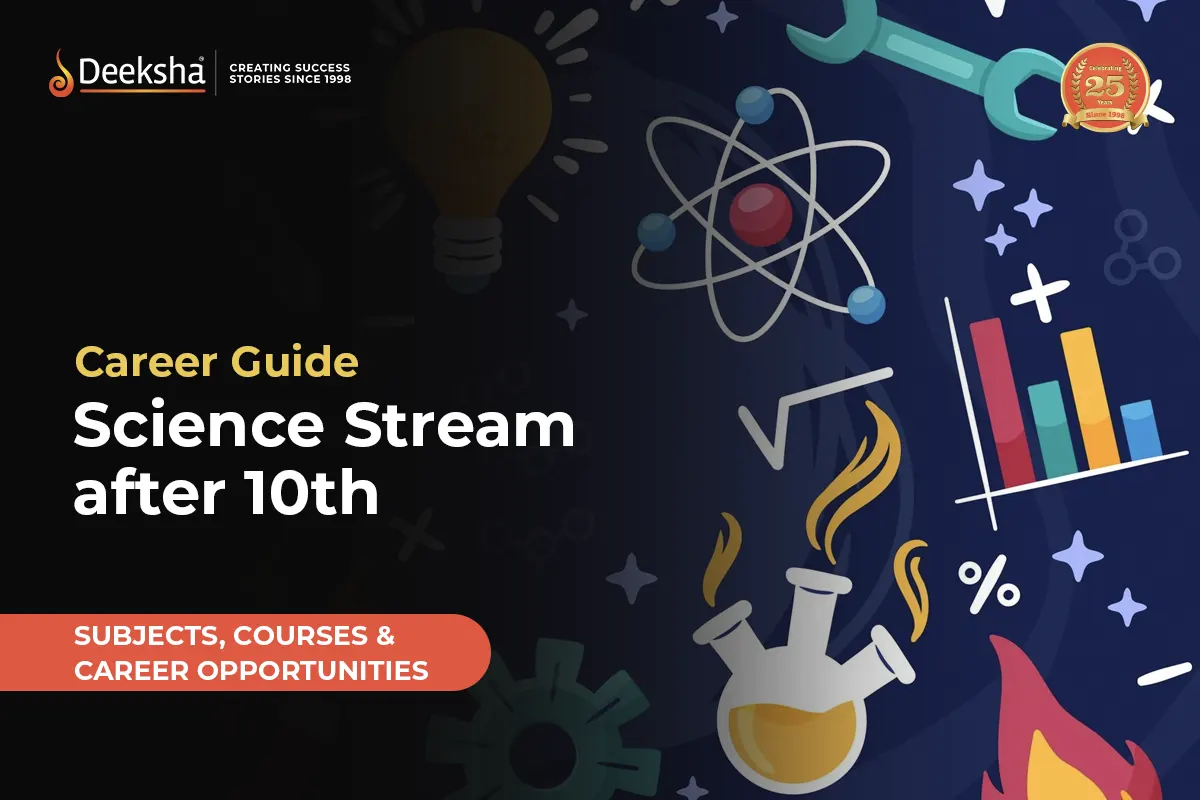



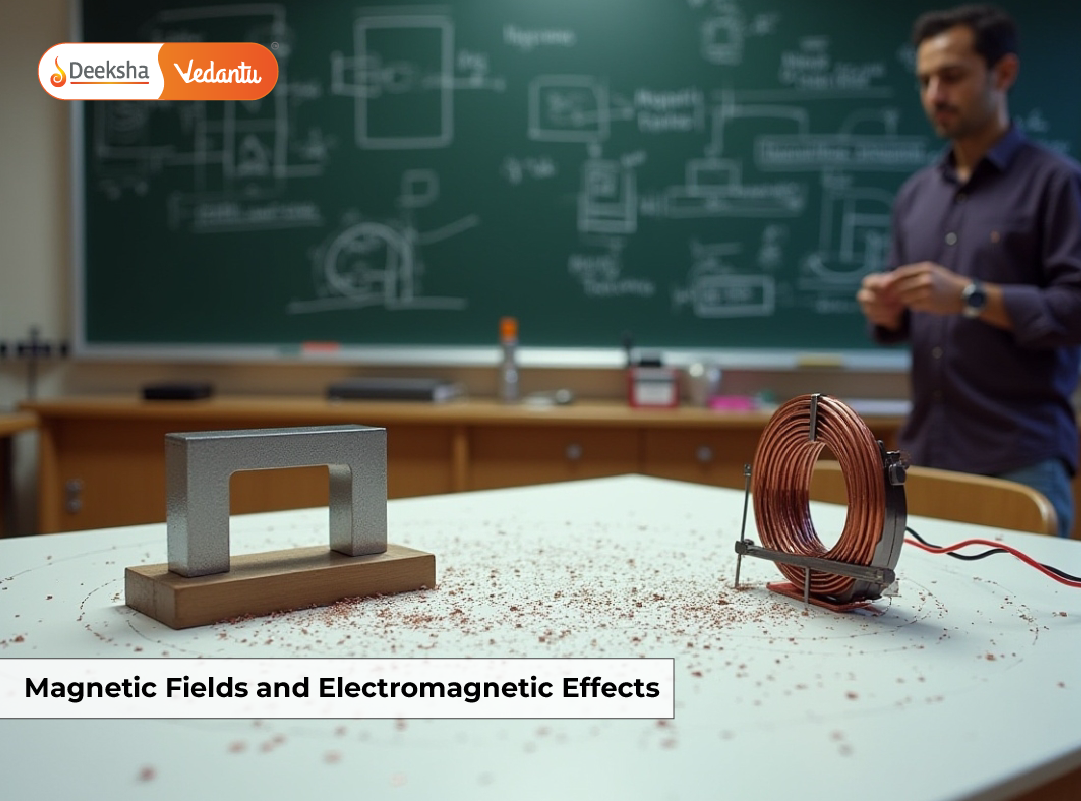
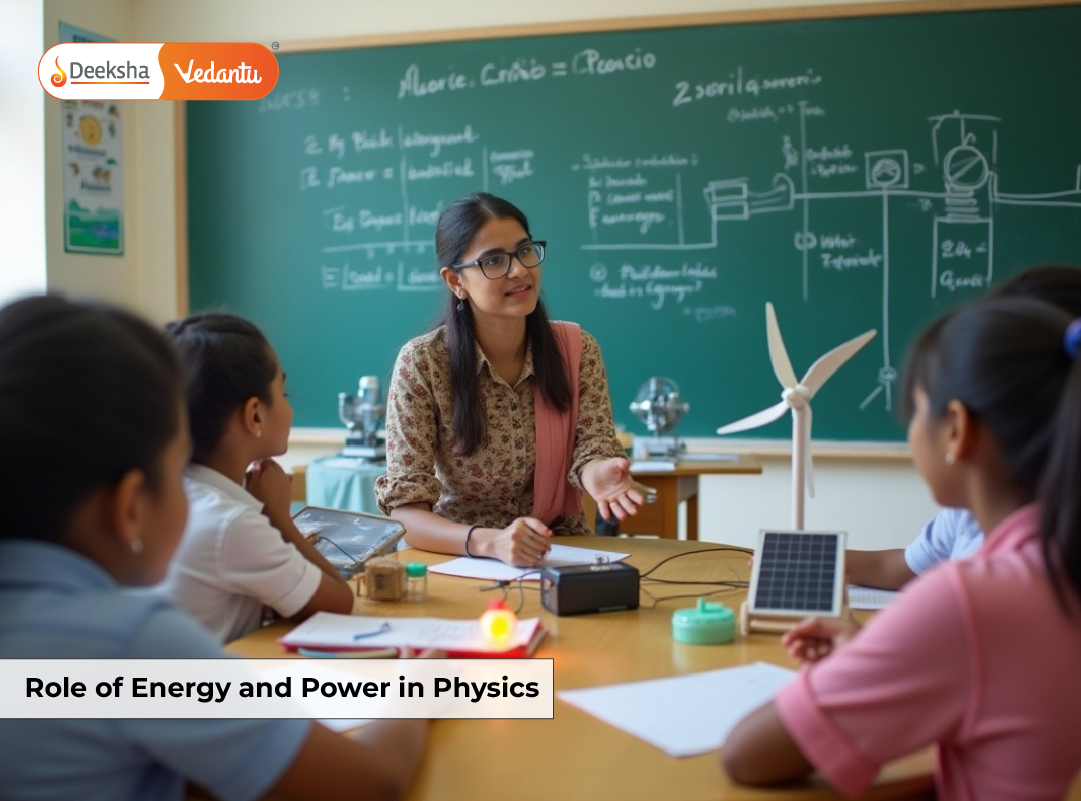
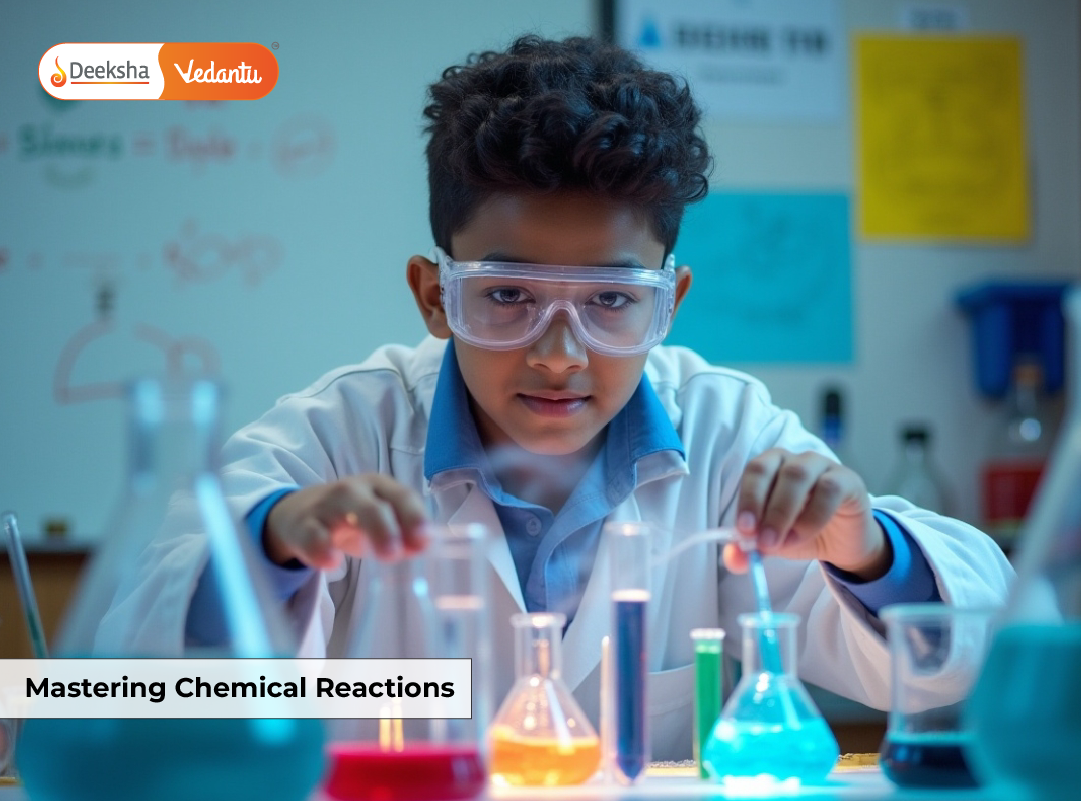
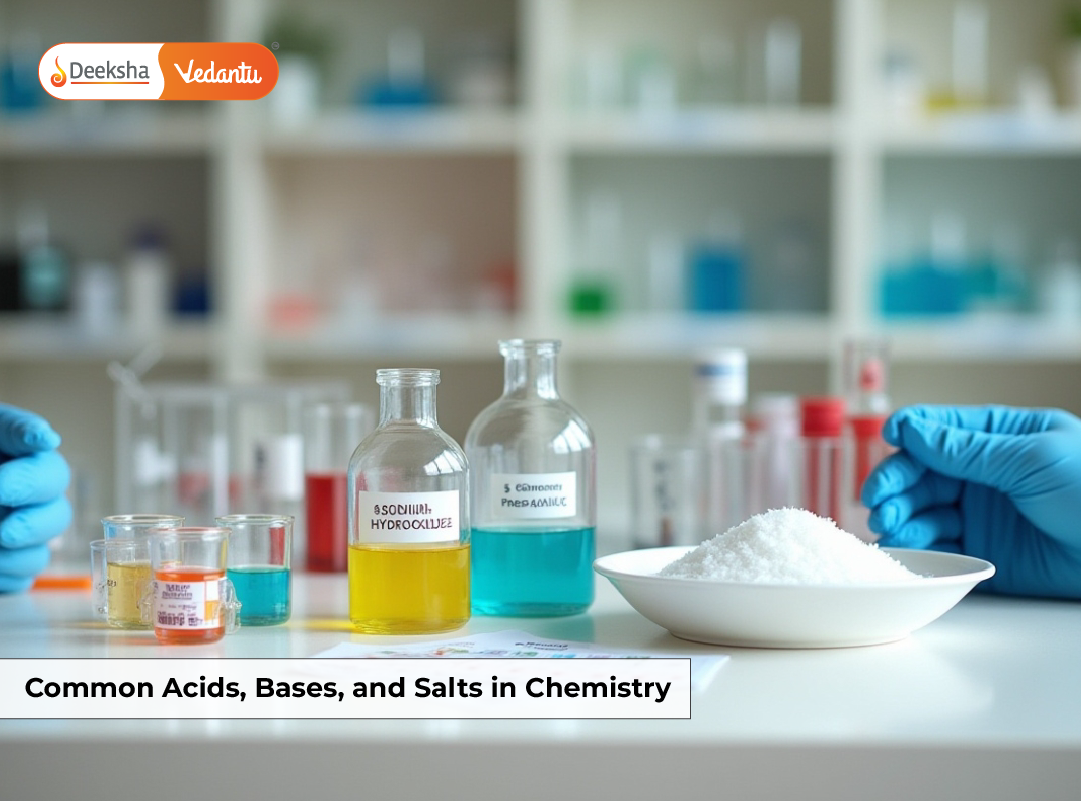
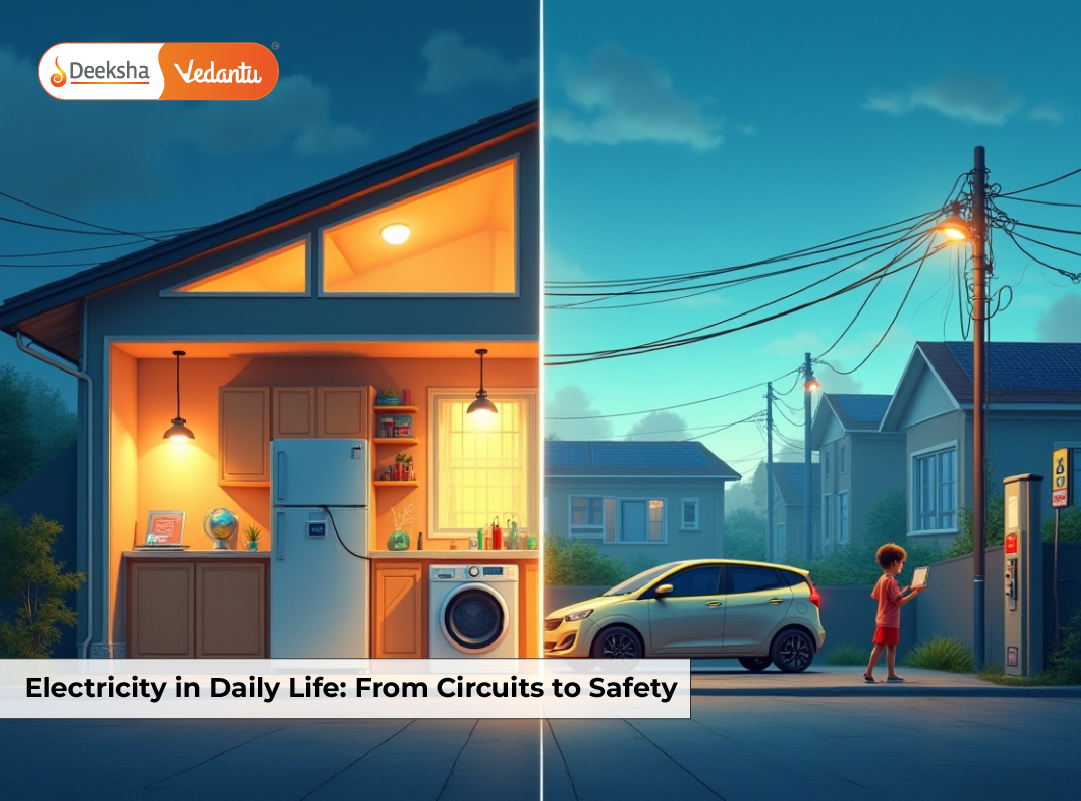
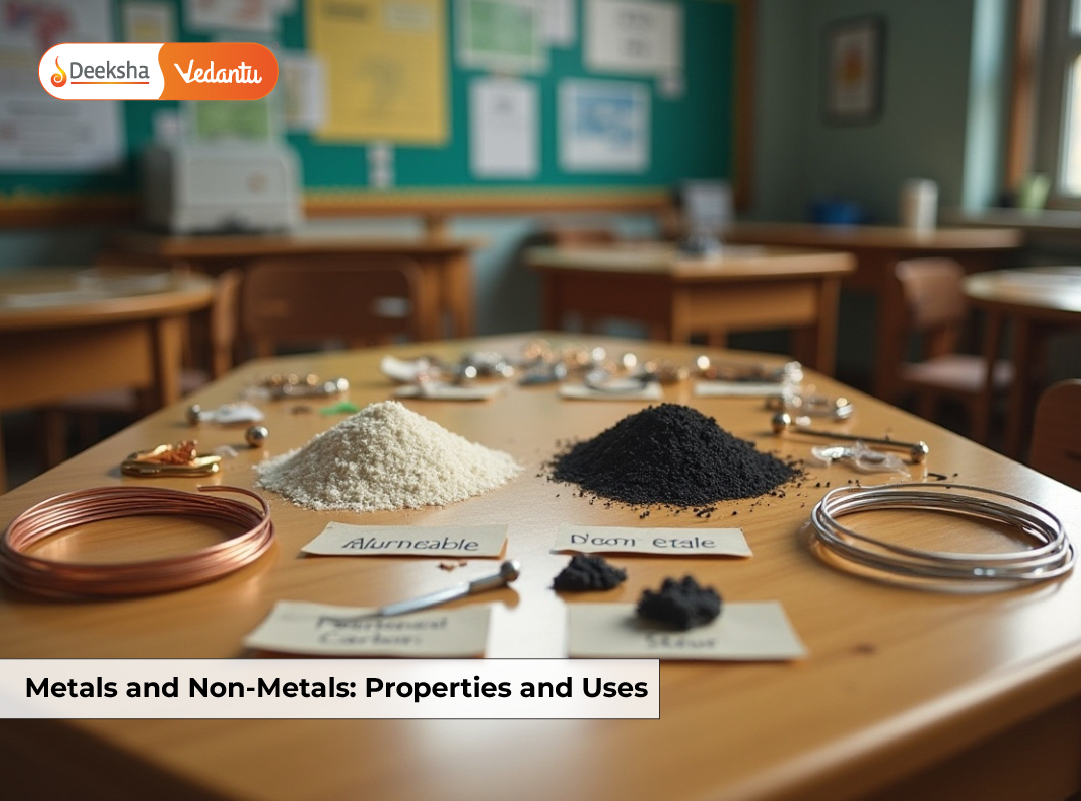



Get Social